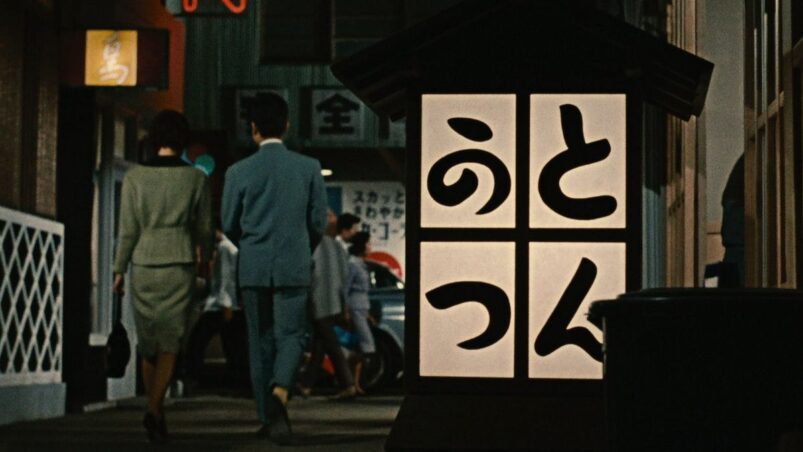Buddy, if you like your filmmakers to be minimalists who focus on a gradual depiction of complex relationships disorganized further by societal pressures and expectations, I’ve got some good news for you about Yasujirō Ozu.
An Autumn Afternoon would be the filmmaker’s last work before dying in 1963 at the age of 60. This movie is as good a place to start with Ozu as any, although it should be said that An Autumn Afternoon is one of his more somber movies. It’s a story about a man resisting the inevitable results of the world beginning to leave him behind. Not instantly or overtly, but in that sense that friends die, industries and attitudes change, children leave, and your body begins to gently fail you.
I know that sounds pretty grim. Bear with me. Ozu was a writer and director whose films often took us deeper than most into the mindsets and human connections of his characters. I suppose his trick was to just let them live through the filter of his unique filming style.
Ozu movies, and An Autumn Afternoon is a particularly good movie for pointing out the man’s precision in setting up his scenes, utilize things like static shots, low camera angles, and a storytelling device known as ellipses. These are events that are spoken about, and can have a tremendous impact on the narrative, but are never actually shown. These and other measures employed by Ozu and those he worked with create a unique, almost melodious pacing that also feels contemplative.
This tone and style can certainly be found in An Autumn Afternoon, as we watch aging recent widow Shūhei Hirayama (Chishû Ryû) come to terms with the current state of his life. His children are largely moving on, save for a young daughter Michiko (Shima Iwashita) who is committed to helping him at the expense of her own happiness. Everyone around him is either getting older or moving forward recklessly with the benefit of being young enough to do that.
Shūhei resists the march of time, as we all do, while various small dramas play out before us (and Shūhei). Eventually he comes to see that Michiko deserves her own chance at life, understanding that in letting her go, he will be forced to truly contemplate his loneliness and fading existence.
When we leave him at the end of An Autumn Afternoon, Michiko has been married offscreen, and Shūhei is getting drunk with his friends in a bar to celebrate. Eventually though, for one reason or another, everyone leaves, and we end Yasujirō Ozu’s final film with an aging drunken widower singing a song from his younger days.
“Alone, eh?” he mutters, and then it’s over.
An Autumn Afternoon is not an overly depressing film. Despite everything I have just described, I would also say there’s something instant and wonderful that connects you to this story and its characters, even if you’ve never seen a Japanese film before. Shūhei’s journey is a beautiful, albeit heartbreaking tribute to life itself. It might be sad, yes, but it wasn’t always that way, and the shine of those younger and more prominent days is still ablaze in the eyes of Shūhei. Ozu’s films are compelling dramas first and foremost, but also stand as joyous documents of humanity in its sincere, fascinating glory.
Got an afternoon free for more classic movies? Read the rest of MTSBYD.
READ NEXT: Pandora’s Box (1929) | Movies To See Before You Die
Some of the coverage you find on Cultured Vultures contains affiliate links, which provide us with small commissions based on purchases made from visiting our site.

![An Autumn Afternoon [Blu-ray]](https://m.media-amazon.com/images/I/51OUVyZXGBL._SL75_.jpg)
